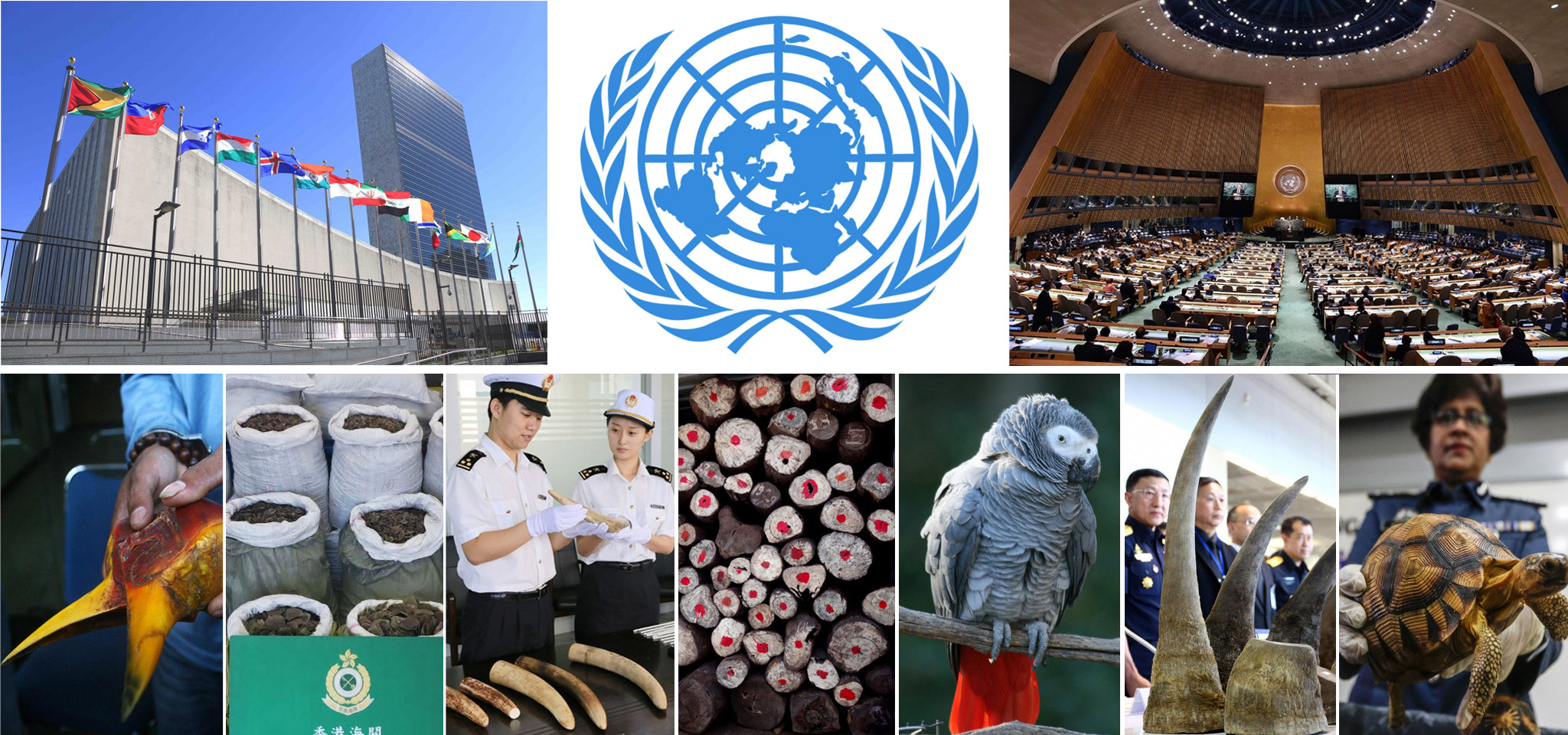Geneva, 20 September 2019: At the 73rd session United Nations General Assembly, the 193 Member States of the United Nations adopted its fourth resolution on tackling illicit trafficking in wildlife.
With 13 references to the Convention on International Trade in Endangered Species of Wild Fauna and Flora (CITES), including the recent 18th meeting of the Conference of the Parties to CITES (17-28 August 2019, Geneva), the UN General Assembly further recognizes CITES as the primary legal framework for regulating international trade in species of wild animals and plants as well as combating illicit trafficking in wildlife.

The new Resolution reinforces the focus on key areas in the fight against illicit trafficking in wildlife, urging Member States to take decisive steps at national, regional and international levels to prevent, combat and eradicate illegal trade in wildlife, on the supply, transit and demand sides. Such efforts include thestrengthening of the requisite legislation and regulations necessary for the prevention, investigation, prosecution and appropriate punishment of such illegal trade, as well as the enhancement of enforcement and criminal justice responses.
In welcoming the Resolution, CITES Secretary-General Ivonne Higuero said: “The new UN General Assembly Resolution reinforces the heightened level of political commitment to tackle the devastating impacts of illegal trade in wildlife. The world’s governments at CITES CoP18 recognized the challenges posed by this illegal trade and adopted crucial resolutions and decisions to address them. By also adopting the CITES Strategic Vision Post-2020, CITES Parties have confirmed their collective view that CITES must be a leader in promoting transformative change in wildlife conservation and management and in combating wildlife trafficking.”
The General Assembly expressed its serious concern about the rate of species extinctions, as indicated in the findings of the Intergovernmental Science-Policy Platform on Biodiversity and Ecosystem Services (IPBES) Global Assessment Report, released earlier this year, and stressed the urgent need to address the unprecedented global decline in biodiversity.
The Resolution highlights the increasing scale of poaching and illegal trade in wildlife products and its adverse economic, social and environmental impacts. It expresses serious concern over the detrimental levels of rhinoceros poaching, the high levels of killings of elephants in Africa and the significant increase in illicit pangolin trafficking, as well as the illegal trade in other protected wildlife species.
The General Assembly has noted with concern that in addition to long established illicit markets, new illicit markets are constantly emerging and pushing species into the endangered category, such as the European eel among others.
New initiatives adopted at CITES CoP18, including resolutions and decisions such as the CITES Strategic Vision 2021-2030, are recognized and welcomed by the UNGA Resolution. It also encourages Member States to take appropriate measures to enforce the provisions of CITES, including measures to penalize trade in, or possession of, illegally traded specimens, or both. Further, the Resolution calls upon Member States to integrate, as appropriate, the investigation of financial crimes linked to wildlife trafficking into wildlife crime investigations, and to increase the use of financial investigation techniques and public private collaboration to identify criminals and their networks.
The resolution continues to recognize the important work of the International Consortium on Combating Wildlife Crime (ICCWC), a collaborative effort of the CITES Secretariat, the International Criminal Police Organization (INTERPOL), the United Nations Office on Drugs and Crime (UNODC), the World Bank and the World Customs Organization (WCO) by, inter alia, providing technical assistance to Member States.
The resolution decides to revisit the issue of wildlife trafficking on a biennial basis, next at its 75th session.
See also:
The International Consortium on Combating Wildlife Crime



